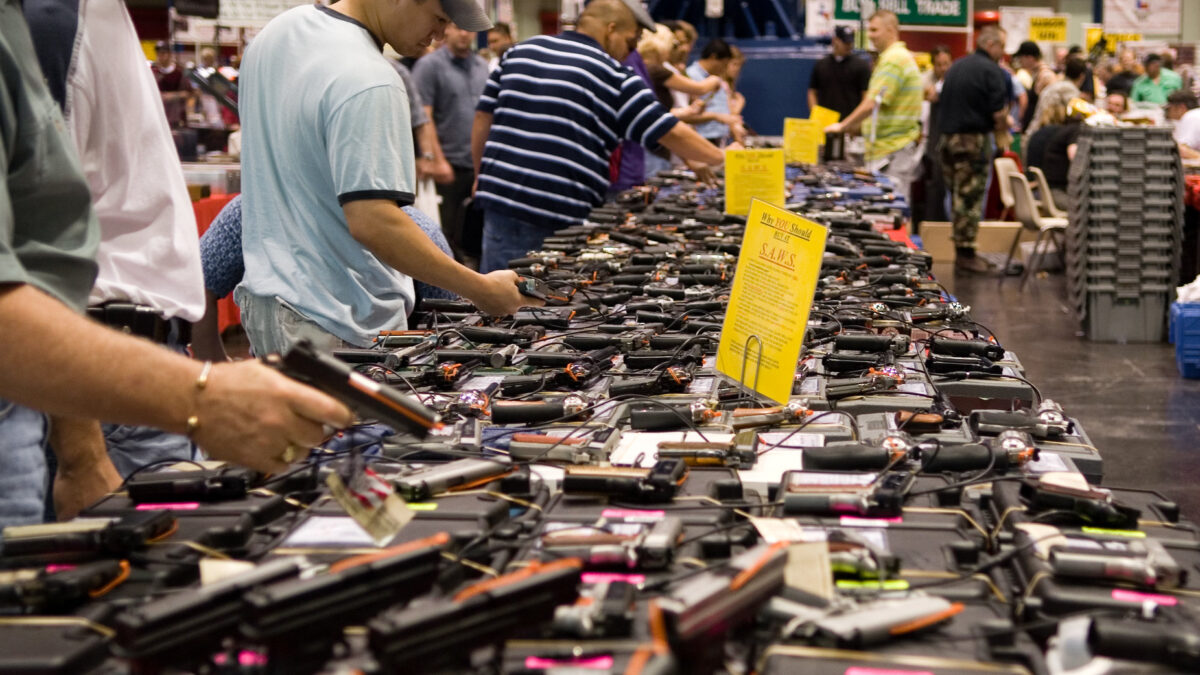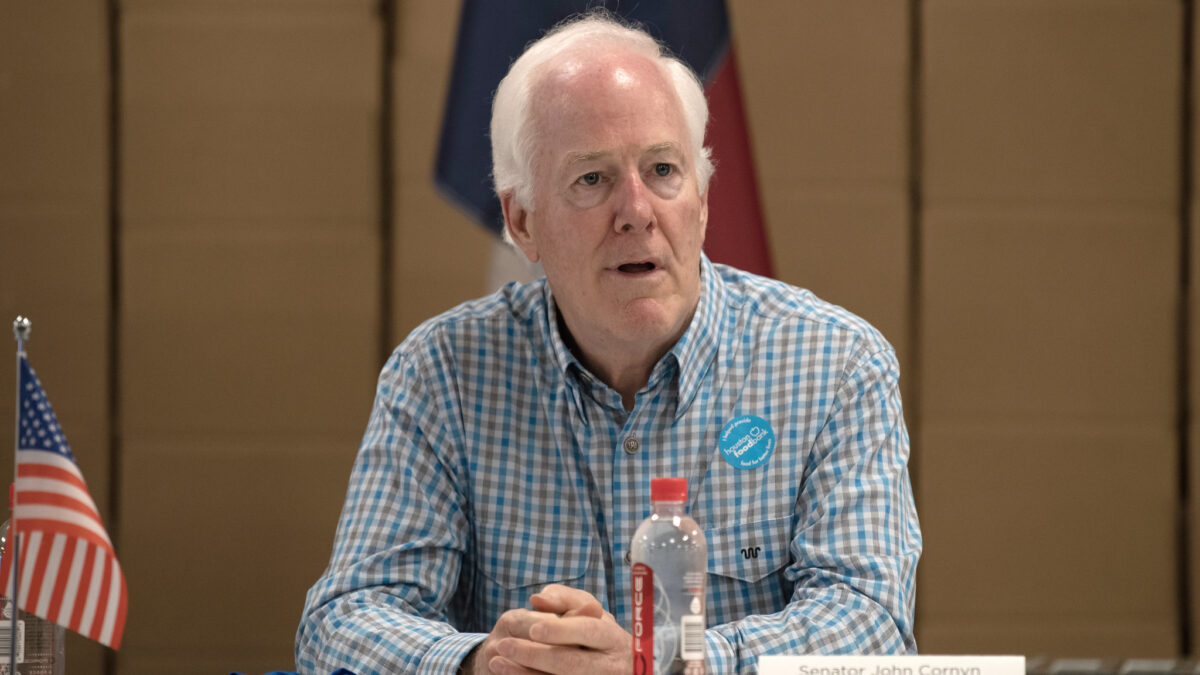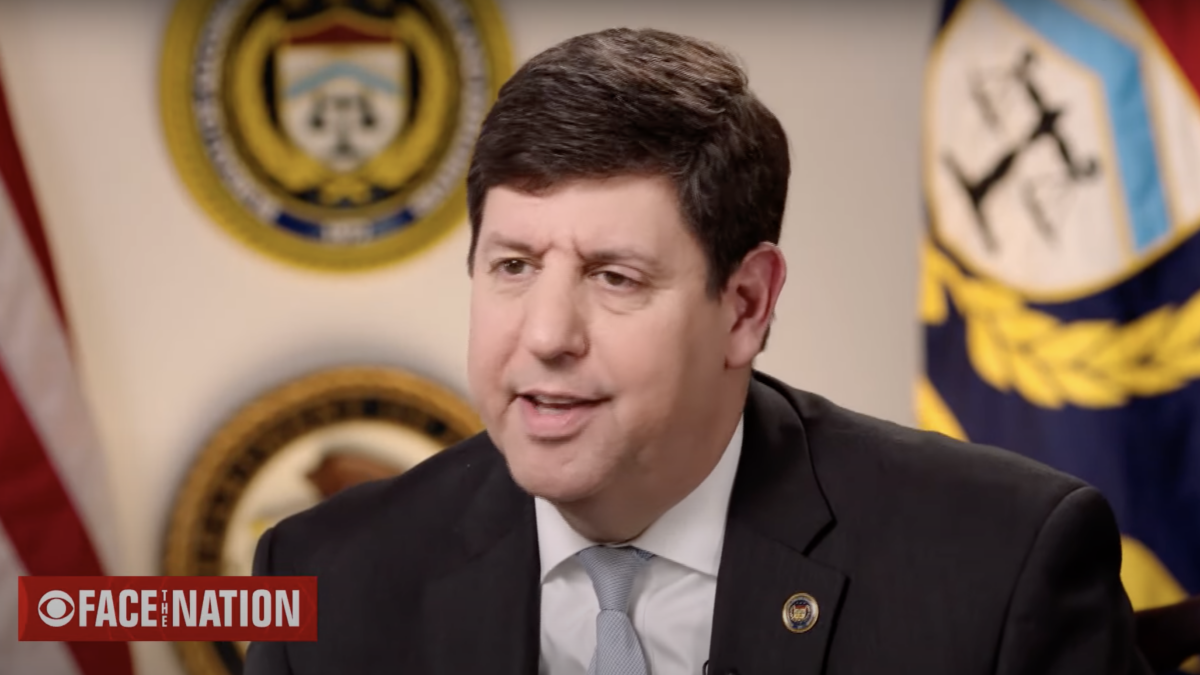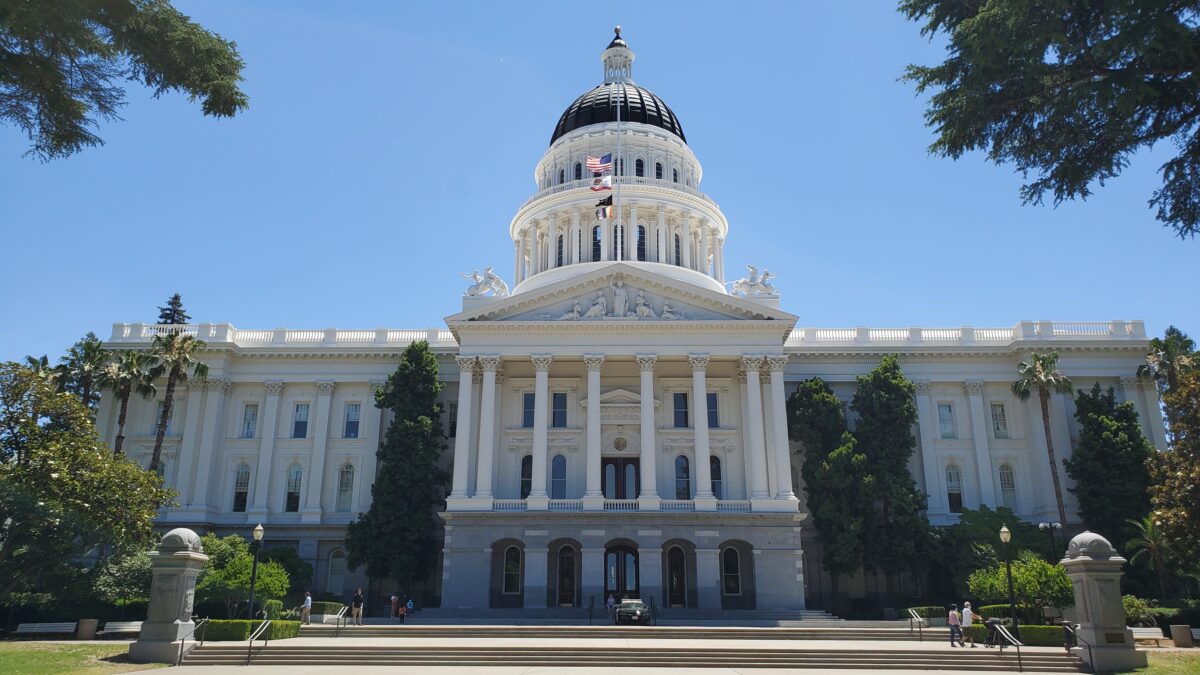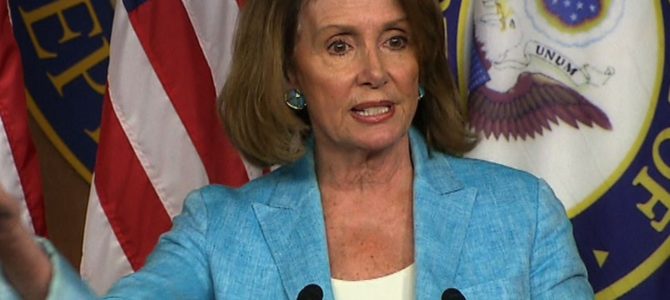
Although mass shootings account for a fraction of gun deaths in America and gun homicides are at historic lows, the terroristic nature of these crimes make them especially traumatic and destructive. The murderers, predominately young white men and loners with hateful, but often confused, ideologies, can strike anywhere. And that puts them everywhere.
As much as people try to make sense of these events, to blame someone, these murderers have no real or tangible objectives other than death. Mass shootings aren’t Donald Trump’s fault any more than they are Elizabeth Warren’s, despite the efforts of many in our parasitic political class to turn every drop of American blood into more votes.
But no matter what trend is responsible, no matter what the shooter’s manifestos state, no matter how they got their weapons, gun controllers will attempt to shame Republicans into “doing something”—or, rather, anything gun controllers demand.
When House Speaker Nancy Pelosi claims Republican inaction “dishonors our solemn duty to protect innocent men, women and children and end this epidemic once and for all,” she is misleading the American people. She has no plan to protect innocent men, women, and children. She has a hashtag to placate them.
These days, #DoSomething entails two proposals that would do nothing to mitigate gun homicides: “universal background checks” and a ban of “assault weapons.”
President Donald Trump wants “strong background checks.” Sen. Pat Toomey wants to pass his old bill to “expand background checks to all commercial firearm sales.” Democrats have already passed a bill doing just that in the House.
As far as we know, neither the El Paso nor the Dayton gunman would have been stopped from purchasing a weapon by an “expanded” background check or any kind of background checks that didn’t have a pre-crime component. Neither shooter had a criminal record. In fact, I can’t find any recent mass shootings that would have been prevented by instituting a universal background check.
Well, that’s not exactly right. The Sutherland Springs church shooter, having been convicted of assaulting his then-wife and stepson, should not have had a gun, but the FBI blew it. The racist Charleston church shooter should have been stopped by a background check, but his narcotics conviction never reached the FBI. Similarly, the Virginia Tech killer bought guns after a court had found him to danger to himself, but the information was never passed on to the federal background-check database.
Perhaps we should have a conversation about tightening up the system that’s already in place before we start passing new laws.
Pelosi, and others, get away with these kinds of statements because, judging from social media reaction, many Americans are under the impression that a criminal can walk into a gun show or a private residence and purchase a military-grade weapon with his library card.
It’s a myth. Every person who buys a firearm from a gun-show dealer must pass a background check. A small fraction of legal weapons are sold from one individual to another — a friend, a family member etc. And almost all of those guns (other than ones bought before 1998) were purchased through a background check.
Straw purchases are also already illegal. If you want to make them extra special illegal, go for it. But you’re not “doing something.”
Then there is the matter of banning semiautomatic rifles. Many gun controllers want to prohibit the scary-looking rifles that these psychopaths prefer.
“I grew up in Montana, attended hunter’s safety class, hunted with my dad, had multiple rifles in our house,” tweeted Michael McFaul. “No one in my family defends the idea that Americans have the need or right to buy military assault guns, capable of killing 9 people in 30 seconds. #Enough. #DoSomething.”
Notwithstanding the fact that McFaul apparently doesn’t understand the Second Amendment, Americans can’t buy “military assault guns”—and no amount of repeating this phrase will change that reality.
Semiautomatic rifles are not “military assault guns” or “weapons of war” or even “assault weapons.” The distinction matters. Semiautomatic rifles are commonly owned and protected by law. Fully automatic “military assault guns” are not, which, I suspect, is why people conflate them.
Then again, if your argument is that any weapon originally designed for war should be banned, then consider the musket, rifle, revolver, and all semi-automatic handguns. In the end, every gun is designed to kill. Otherwise, it would be worthless.
Mass shooters probably prefer the AR-15 (or AK47-“style” weapons) for aesthetic reasons. AR-15s are responsible for only a sliver of gun homicides. The Federal Assault Weapons Ban (1994 to 2004) did little, if anything, to alter gun violence trends. Once the assault weapon ban was lifted, and the AR-15 became the most popular rifle in the country, gun violence continued to steeply fall.
But what if these murderers started using semiautomatic handguns—the Virginia tech murderer, for instance, killed 32 people with handguns. Should we then have to ban all Glocks, as well?
Maybe that’s the point. If you believe banning and confiscating tens of millions of semiautomatic guns is practical or legal, as many liberals clearly do, just say so. President Kamala Harris is ready to send cops to every door. You are free to try and overturn the Second Amendment. But the Heller decision found that the Constitution protects weapons “in common use by law-abiding citizens.” Semiautomatic rifles clearly meet this criteria.
Maybe it’s not any particular gun? Anti-gun warriors get annoyed when others point out that perhaps the nation should focus less on guns and more on mental health problems, especially depression.
Trump called on the Justice Department to work with social media companies to identify potential mass shooters, who these days latch onto extremist ideologies. Perhaps there’s an effective way to accomplish this, but really, it’s schools and families and neighbors who should be spotting these potential killers.
We already have red flag laws that prohibit the sale of a gun to anyone who “has been adjudicated as a mental defective.” A person has an option to appeal the ban and show “a preponderance of the evidence” that he would use firearms in “a safe and lawful manner.”
The mass murderer of Parkland threatened classmates online, posted photos with guns, and was repeatedly described to authorities as a potential “school shooter.” Police could have arrested him on numerous occasions and confiscated his guns using laws that were already on the books. They didn’t. The Dayton mass murderer was, judging from early reports, a twisted man who had threatened classmates and had an obsession with killing and death. Surely, he should have been flagged.
Police can use these laws. And perhaps they can be expanded to help family members and schools warn others about potential shooters and extremists (the real ones, not the conservatives whom liberals keep smearing.)
One problem with red flag laws is that politicians often use them as an attack on due process, expanding confiscatory laws to prohibit large numbers of people from owning firearms. For example, in California, any one-time patient of a mental facility is banned from owning firearms “for the remainder of his or her life.”
Still, not even the strictest laws in California have stopped mass shootings. There are already tens of thousands of gun regulations on the books. Guns are perhaps the most regulated object in American life, even though owning one is a constitutional right. And just as we shouldn’t let terrorists dictate the contours of our speech rights, or our right to privacy, they shouldn’t get to set the parameters of our gun rights.


